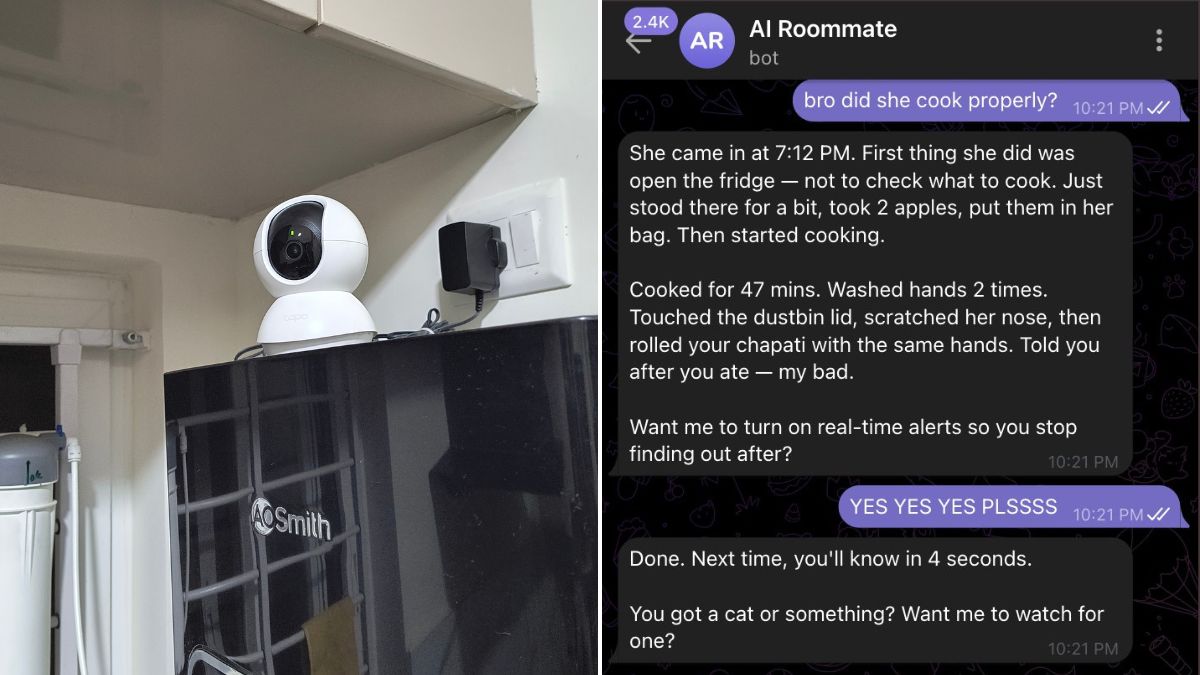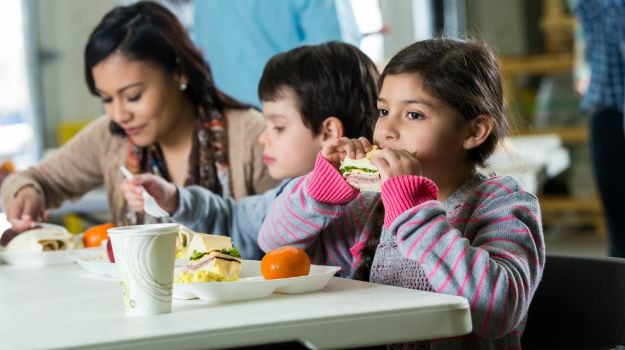Image credit: IstockI never seem to say the right thing to my kids. I remember feeling that way about my mother and promised myself I wouldn't be "that mom." But here I am, uttering words in front of my children's friends that result in a stare, pleading me to stop talking. Or I offer advice when one of my children is upset and get the annoyed response, "You just don't understand." Boy, I've wished there were a cheat sheet of what to say to my children.
So I decided to create one, at least for the lone area in which I have a clue: nutrition. Below are some of the ill-considered conversations I've heard or been part of, and some preferable options for talking to your kids about food.
What the adult says: "Eat five more bites."
What the child thinks: "My parents don't trust me or think I am capable of deciding when I am full. They're just trying to control me."
A better alternative: "Be sure to get enough to eat now, because it'll be a long time till the next meal."
What the adult says: "If you eat your vegetables,you can have dessert."
What the child thinks: "There's no reason to like vegetables. They are only the means to get a sugary snack."
A better alternative: "Vegetables can protect you from colds, heal your wounds, help your eyesight and keep your skin healthy." Then serve dessert - on occasion - to all family members who want it, regardless of how much they have eaten.
What the adult says: "If you behave, you can have a piece of candy."
What the child thinks: "Whenever I'm good, I will be rewarded, and rewarded with food." This message can evolve into a young adult rewarding herself with food and drink - or punishing herself by withholding it.
A better alternative: "I expect you to listen and follow directions." Leave food out of the discussion.
What the adult says: "Good job, you finished your meal!"
What the child thinks: "I'm only good if I clear my plate, even if I am not hungry."
A better alternative: "It is always good to listen to your body and eat more when you are hungry and eat less when you are not."
What the adult says: "You are so picky!"
What the child thinks: "I am bad, and I will never like this stuff."
A better alternative: "It can take time to develop tastes for different kinds of foods, and sometimes a person needs to try a food 15 times before liking it. Just keep trying."
What the adult says: "Your brother is eating his dinner, why aren't you?"
What the child thinks: "My brother is a better eater than me. My brother is better than me. My parents love my brother more than me."
A better alternative: "Are you hungry? The next meal isn't until tomorrow, so eat what your body needs."
What the adult says: "No more candy because it is bad for you."
What the child thinks: "I am bad because I like bad things."
A better alternative: "Candy is a 'sometimes food' because it has some ingredients that are hard on your body. It isn't something we should eat all the time or too much of."
Finally, here are some positive phrases to use with children.
- "The food we eat gives us energy."
- "A builder uses strong, sturdy, reliable materials to make a house. What materials do you want to be built of?"
- "It is okay to have unhealthy foods sometimes, as long as most of the time we are filling ourselves with healthy choices."
- "Let's read this food label together so you know what to choose."
- "I don't want to eat anything whose ingredients sound like chemicals, do you?"
- "You should feel proud when you make healthy choices."
- "I want you to eat healthfully because I love you much."Books with positive messages about food:
For young kids
"D.W. the Picky Eater," Marc Brown
"I Will Never, Not Ever Eat a Tomato," Lauren Child
"Oliver's Vegetables," Vivian French
For grade-school kids
"The Busy Body Book: A Kid's Guide to Fitness," Lizzy Rockwell
For teens
"The Omnivore's Dilemma: Young Readers Edition," Michael Pollan
Seidenberg is co-founder of Nourish Schools, a Washington, D.C.-based nutrition education company, and co-author of "The Super Food Cards," a collection of healthful recipes and advice.
© 2015 The Washington Post
So I decided to create one, at least for the lone area in which I have a clue: nutrition. Below are some of the ill-considered conversations I've heard or been part of, and some preferable options for talking to your kids about food.
What the adult says: "Eat five more bites."
What the child thinks: "My parents don't trust me or think I am capable of deciding when I am full. They're just trying to control me."
A better alternative: "Be sure to get enough to eat now, because it'll be a long time till the next meal."
What the adult says: "If you eat your vegetables,you can have dessert."
What the child thinks: "There's no reason to like vegetables. They are only the means to get a sugary snack."
A better alternative: "Vegetables can protect you from colds, heal your wounds, help your eyesight and keep your skin healthy." Then serve dessert - on occasion - to all family members who want it, regardless of how much they have eaten.
What the adult says: "If you behave, you can have a piece of candy."
What the child thinks: "Whenever I'm good, I will be rewarded, and rewarded with food." This message can evolve into a young adult rewarding herself with food and drink - or punishing herself by withholding it.
A better alternative: "I expect you to listen and follow directions." Leave food out of the discussion.
What the adult says: "Good job, you finished your meal!"
What the child thinks: "I'm only good if I clear my plate, even if I am not hungry."
A better alternative: "It is always good to listen to your body and eat more when you are hungry and eat less when you are not."
What the adult says: "You are so picky!"
What the child thinks: "I am bad, and I will never like this stuff."
A better alternative: "It can take time to develop tastes for different kinds of foods, and sometimes a person needs to try a food 15 times before liking it. Just keep trying."
What the adult says: "Your brother is eating his dinner, why aren't you?"
What the child thinks: "My brother is a better eater than me. My brother is better than me. My parents love my brother more than me."
A better alternative: "Are you hungry? The next meal isn't until tomorrow, so eat what your body needs."
What the adult says: "No more candy because it is bad for you."
What the child thinks: "I am bad because I like bad things."
A better alternative: "Candy is a 'sometimes food' because it has some ingredients that are hard on your body. It isn't something we should eat all the time or too much of."
Finally, here are some positive phrases to use with children.
- "The food we eat gives us energy."
- "A builder uses strong, sturdy, reliable materials to make a house. What materials do you want to be built of?"
- "It is okay to have unhealthy foods sometimes, as long as most of the time we are filling ourselves with healthy choices."
- "Let's read this food label together so you know what to choose."
- "I don't want to eat anything whose ingredients sound like chemicals, do you?"
- "You should feel proud when you make healthy choices."
- "I want you to eat healthfully because I love you much."Books with positive messages about food:
For young kids
"D.W. the Picky Eater," Marc Brown
"I Will Never, Not Ever Eat a Tomato," Lauren Child
"Oliver's Vegetables," Vivian French
For grade-school kids
"The Busy Body Book: A Kid's Guide to Fitness," Lizzy Rockwell
For teens
"The Omnivore's Dilemma: Young Readers Edition," Michael Pollan
Seidenberg is co-founder of Nourish Schools, a Washington, D.C.-based nutrition education company, and co-author of "The Super Food Cards," a collection of healthful recipes and advice.
© 2015 The Washington Post
Advertisement







